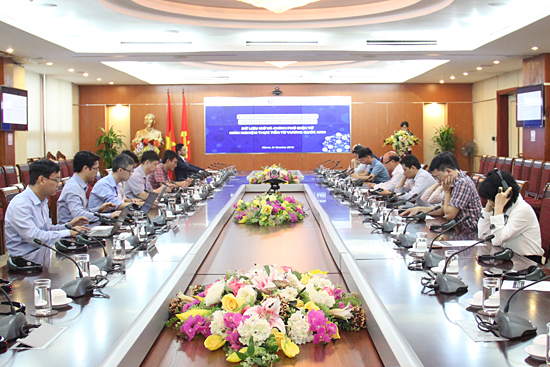
At the workshop, representatives of the Authority of Information Technology Application (MIC) introduced the general situation of Vietnam's e-government building and orientation. Accordingly, the three pillars of e-government are: Enhancing transparency; Serving people, businesses effectively and improving the performance of state agencies. However, there are some limitations such as: connection, information and data sharing; IT infrastructure. There is a gap in the capacity of public service delivery between urban and rural areas.
Sharing the building of e-government, Mr. Thom Towned, Head of Open Data Policy, said that: at the central level, the UK had set up a task force to define information delivery standards that change the way ministries operate. The www.gov.uk website is now providing nearly 800 online services. The UK government is focused on providing popular online public services. However, there are services having small number of users are still available because they are useful for people living in remote areas. The UK has a fairly complex legal environment for sharing data, with 17 laws on private data sharing. The Digital Economy Act of 2017 has created a new legal framework for data sharing, especially for sharing data between government agencies. For open data, government agencies are not responsible for open data if the data is used in a negative way. However, the government also places restrictions on disclosure of personal data, data provided by third parties, information on intellectual property rights, and personal records.
He also shared the British government's G-Cloud and said it was a government initiative to facilitate ministries in the purchase of IT services. Accordingly, the Government builds a list of 300 companies that have been appraised and state agencies can purchase IT and cloud services from these companies without having to implement procurement procedures. These companies have been assessed for quality of service, achieving standards for information security. Local governments also regularly use the services of these companies to provide online publicity and procurement of IT equipment.
